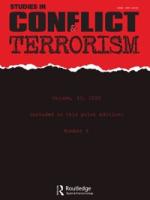Unity, Segregation, and obedience
In this journal article, Maria-Louise Clausen argues that IS understands itself as a form of political order superior to the state. This argument is made through an investigation of three key dimensions of how Islamic state uses Quranic quotes in Dabiq to show how the Islamic state is a more legitimate state, namely the need to avoid division (unity), the obligation to avoid disbelievers and fight them (segregation), and the necessity to obey God and by extension, the caliph (obedience). Hence, instead of focusing on whether IS is a state, the article contributes to existing debates on IS’ state-building project by investigating how IS used Quranic quotes to construct an idea of a superior state.
Thus, the article contributes to ongoing debates on the Islamic State by showing how the attractiveness of IS also lies in its ability to present an alternative form of political order. IS used religion to distinguish its state-building project from current nation-states and instead place itself within a historical tradition of caliphates. This points to the need for further research on the interaction between the religious and the political in emerging forms of political order.
DIIS Experts


